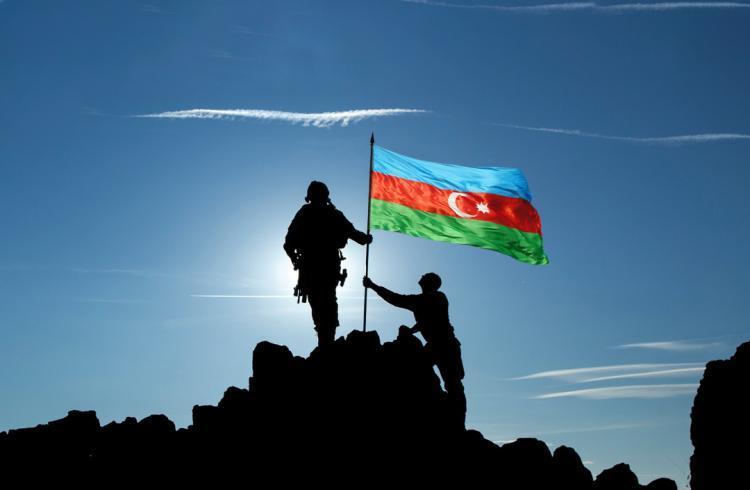Armenia accepts peace with Azerbaijan only alternative

By Vafa Ismayilova
Armenia has accepted the new realities created by Azerbaijani President Ilham Aliyev following the 44-day victory war in 2020. After a trilateral meeting with Aliyev and EU Council President Charles Michel in Brussels on April 6, Prime Minister Nikol Pashinyan admitted that Armenia has no alternative but peace.
Pashinyan made everything clear by his very fresh statement in Yerevan on April 13. He once again welcomed the five-point principles recently offered by Azerbaijan to reach peace between the sides.
“We promptly discussed the proposals and acknowledged that there is nothing unacceptable for Armenia in them, especially since de jure Armenia recognized the territorial integrity and inviolability of the borders of Azerbaijan by ratifying the Agreement on the Formation of the Commonwealth of Independent States back in 1992, and this recognition is still today part of our domestic legislation,” the Armenian PM said.
He reiterated his agreement that the two foreign ministers should begin preparations for a peace treaty.
"What this means, what the format will be, what the deadlines will be, all of this is still up for debate. However, signing a peace treaty with Azerbaijan as soon as possible is part of our plans," he said.
He described the main goal of Yerevan's strategy as analyzing Azerbaijan's position and determining Armenia's official position on the border issue.
“In order to be as legitimate as possible in our position, it is necessary to use only facts and arguments that have a legal basis in defining the borders. We want to ensure that this legitimacy is recognized by the international community and reach an agreement with Azerbaijan on this basis," Pashinyan said.
In his opinion, there are very few countries in the world today that are satisfied with their borders and consider them fair. Pashinyan assured that he has to repeat that the peace agenda for Armenia has no alternative.
Some experts in Azerbaijan believe that now the main task is to speed up the work of the working groups. Because there are many forces that want to hinder this process. These are the radical opposition in the person of Armenia's "Karabakh clan", the separatists in Karabakh, the Armenian lobby in the world and the centers in Russia. Together, they will try to impede direct dialogue and discussions between Azerbaijan and Armenia.
Some groups rule out any significant obstacles, stressing that there is a high probability that Azerbaijan and Armenia will be able to agree and sign a peace treaty in the near future.
The fact that Azerbaijani President Ilham Aliyev also stressed Armenia’s positive stance on Azerbaijani-Armenian normalization gives grounds to say that this historic day is drawing closer.
“Armenia accepts the five principles. So the territorial integrity of Azerbaijan is recognized and Armenia renounces its territorial claims to Azerbaijan. In other words, if it accepts the five principles – as it was confirmed at the April meeting – then these are part of these five principles,” he said.
The president underlined that this is a key condition for normalizing bilateral relations. He also added that it was agreed that working groups would be formed on the border issues and the preparation of a peace agreement. In this regard, he noted that the working groups to be set up by late April should start their work soon.
“As you know, the foreign ministers of Azerbaijan and Armenia have recently had a telephone conversation, which I think was the first time it happened in the last 30 years. We also welcome that,” Aliyev said.
The future of Armenia depends on relations with its neighbors against the backdrop of the latest global turbulence. Armenia’s development is doomed to failure without normalized relations with Turkey and Azerbaijan. The imminent peace treaty is the last chance for Armenia as the country will either develop or it will be trapped in a deadlock.
The state policy pursued by Azerbaijan immediately after the war, which continued for about two years, the country's leadership’s activities in international organizations, relations with great powers in a bilateral format, the progress and developments in Karabakh and East Zangazur led to the current realities.
Azerbaijani President Ilham Aliyev, Armenian Prime Minister Nikol Pashinyan and European Council President Charles Michel met in a trilateral format in Brussels on April 6.
The meeting was held for a continuation of the discussions on the situation in the South Caucasus region and the development of EU relations with both countries.
The leaders took stock of developments since their last meeting in Brussels in December 2021 and their videoconference, together with French President Emmanuel Macron, in February 2022. They reviewed progress on the implementation of undertaken commitments. The leaders discussed the recently reported tensions and reiterated the necessity of adhering fully to the provisions of the 9/10 November 2020 trilateral statement.
Both Aliyev and Pashinyan expressed a willingness to work quickly toward a peace agreement between their countries. To that end, it was decided to instruct foreign ministers to begin work on drafting a future peace treaty that would address all of the issues.
At the same time, it was also agreed to convene a Joint Border Commission by the end of April. The Joint Border Commission's mandate will be to: delimit the bilateral border between Armenia and Azerbaijan, and ensure a stable security situation along and in the vicinity of the borderline.
--
Here we are to serve you with news right now. It does not cost much, but worth your attention.
Choose to support open, independent, quality journalism and subscribe on a monthly basis.
By subscribing to our online newspaper, you can have full digital access to all news, analysis, and much more.
You can also follow AzerNEWS on Twitter @AzerNewsAz or Facebook @AzerNewsNewspaper
Thank you!
